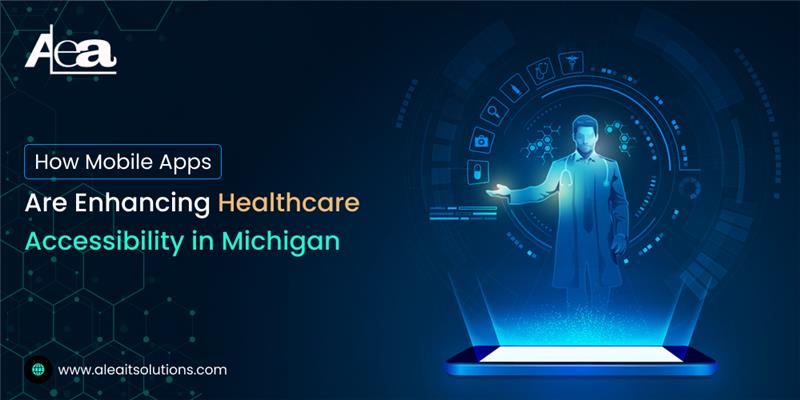In recent years, mobile apps have emerged as powerful tools in making healthcare more accessible, especially in states like Michigan. Mobile health (mHealth) applications are helping bridge gaps in the healthcare system by providing patients with more direct and convenient access to medical resources, professionals, and services. In Michigan, where urban centers and rural areas alike often face barriers to healthcare, these apps are reshaping how people receive care. Here’s how mobile apps are enhancing healthcare accessibility in Michigan and why this technology trend continues to gain momentum.
1. Telemedicine Brings Care to Remote Areas
Mobile apps that support telemedicine have transformed how patients in Michigan can access medical consultations, especially in rural or underserved regions. For patients who previously had to travel long distances to see a doctor, telemedicine apps now allow them to consult with healthcare providers from the comfort of their homes. These apps enable virtual check-ups, follow-ups, and even emergency consultations, making healthcare more convenient and reducing travel-related barriers.
2. Improved Chronic Disease Management
Managing chronic diseases like diabetes, hypertension, and asthma can be a challenge without regular medical support. Mobile apps designed for chronic disease management help patients monitor their conditions, receive reminders for medication, and track vital health metrics. For instance, an app can remind a diabetic patient to check blood sugar levels and can store the data for later review with their healthcare provider. In Michigan, where lifestyle-related chronic conditions are prevalent, such apps can lead to better health outcomes and reduced hospital visits.
3. Mental Health Support at Fingertips
Mental health apps have made counseling and support more accessible to Michigan residents. With an increasing awareness of mental health, these apps offer features like virtual therapy sessions, mood tracking, guided meditations, and access to licensed therapists. In urban centers like Detroit and Grand Rapids, mental health apps are popular for providing quick, anonymous support. They can be life-changing for those who might be hesitant to seek in-person help due to stigma or privacy concerns.
4. Appointment Booking and Medical Records Management
Scheduling appointments and managing medical records can be a hassle for patients. Mobile apps streamline this process by allowing users to book appointments with a few taps, check waiting times, and access their health records digitally. In Michigan, many healthcare providers now integrate apps that allow patients to receive appointment reminders and manage their medical history all in one place. This ease of access not only improves the patient experience but also helps medical staff reduce administrative burdens.
5. Health Education and Preventive Care
Education on preventive healthcare and healthy lifestyle practices is essential for reducing the burden of disease. Apps dedicated to health education are increasingly being adopted to inform Michigan residents about healthy habits, preventive screenings, and lifestyle changes. For instance, apps offering dietary advice, exercise routines, and wellness tips encourage users to lead healthier lives and engage in preventive care.
6. Prescription Management and Pharmacy Integration
Mobile apps that facilitate prescription management and integrate with local pharmacies are particularly helpful for patients who require ongoing medication. Users can order refills, receive dosage reminders, and track their prescriptions from their phones. In Michigan, some pharmacy chains provide mobile apps where patients can order prescriptions, check for discounts, and arrange delivery—an invaluable service, especially for the elderly and those with mobility challenges.
7. Data-Driven Insights for Better Health Outcomes
With the use of mobile apps, healthcare providers can gather real-time data that helps them understand patient behaviors and improve care plans. This data-driven approach allows doctors to make more informed decisions and create personalized treatment plans. In Michigan, this technology is enabling better patient-provider communication and, ultimately, enhanced healthcare outcomes.
The Role of AleaIT Solutions
As mobile app development continues to play a critical role in transforming healthcare in Michigan, AleaIT Solutions is here to help healthcare providers and organizations leverage these advancements. With expertise in creating tailored mHealth applications, AleaIT Solutions offers scalable, secure, and user-friendly mobile apps designed to meet Michigan’s unique healthcare needs. From telemedicine platforms to chronic disease management tools, AleaIT is committed to delivering technology solutions that bridge gaps and improve access to healthcare for all.
Whether you are a healthcare provider seeking to enhance patient engagement or an organization aiming to provide innovative healthcare solutions, AleaIT Solutions is ready to partner with you in creating a healthier Michigan.




